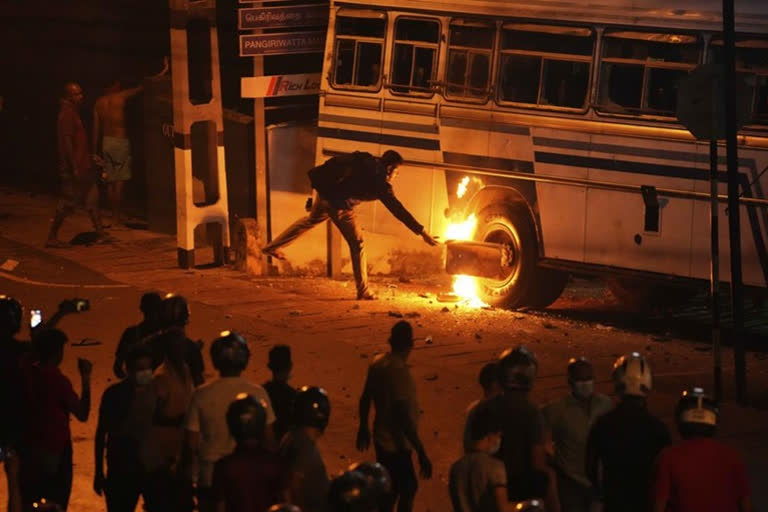Colombo: Sri Lanka's president declared a state of emergency in the island nation Saturday, a day after angry protesters demonstrated near his home demanding he resign and as plans were made for a nationwide protest over the country's worst economic crisis in memory. President Gotabaya Rajapaksa invoked sections of the Public Security Ordinance, which gives him authority to make regulations in the interests of public security, preservation of public order, suppression of mutiny, riot or civil commotion or for the maintenance of essential supplies.
Under the emergency regulations, the president can authorize detentions, take possession of any property and search any premises. He can also change or suspend any law. The order came a day after dozens of people were arrested following protests near the president's home. There are also calls for an island-wide public protest on Sunday. Rajapaksa's office blamed organized extremists within the thousands of protesters for violence during Thursday night's demonstration, where police fired tear gas and a water cannon and arrested 54 people. Dozens of other people were also injured.
Read:Lanka crisis: Protests near President's residence is an act of terrorism, says govt
Nuwan Bopage, an attorney representing some of the suspects, said several of them were being taken for medical examinations for various injuries and were to appear in court Friday. A police curfew that had been implemented in the suburbs of the capital, Colombo, was lifted Friday morning. The protesters blame Rajapaksa for long power outages and shortages of essential goods. Sri Lanka has huge debt obligations and dwindling foreign reserves, and its struggle to pay for imports has caused the shortages. People wait in long lines for fuel, and power is cut for several hours daily because there's not enough fuel to operate generating plants and dry weather has sapped hydropower capacity.
